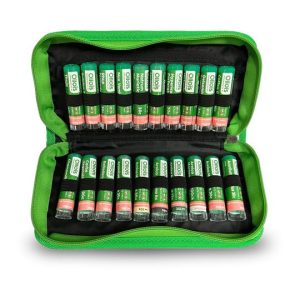Introduction
In a landmark scientific investigation, researchers have undertaken an in-depth exploration of the immunomodulatory properties inherent in the homeopathic remedy Arsenicum Album 30C. This study zeroes in on its profound influence on the RAW 264.7 macrophage cell line in mice, offering novel insights into the facilitation of macrophage polarization towards the M1 phenotype.
Arsenicum Album 30C: Unveiling its Unique Composition
At the heart of this attention-grabbing study is Arsenicum Album 30C, a homeopathic medicine primarily composed of nanocrystals of arsenic trioxide (As2O3). Intriguingly, the human body’s innate immune system, encompassing cells like macrophages and receptors like Toll-like receptors (TLR), serves as the initial defense against pathogens. Consequently, the researchers delve into the potential impact of it on these vital components of the immune system.

Macrophage Polarization: A Keystone in Innate Immunity
The study unfolds a significant revelation – Arsenicum Album 30C induces macrophage polarization towards the M1 phenotype. This specific phenotype, intricately linked with pro-inflammatory functions, plays a pivotal role in the body’s fight against infections. The study highlights the overexpression of surface marker CD80 and transcription factor NF-κB in M1 cells, signifying polarization, both of which are crucial elements in immune responses.
Decoding the Role of Arsenic Trioxide Nanocrystals
Noteworthy is the revelation from the study regarding the presence of crystalline As2O3 cubic nanostuctures within Arsenicum Album 30C. This unique structure seems to play a pivotal role in activating macrophage polarization, thereby regulating innate immunity. Thus, the study not only validates the immunostimulatory potential of it but also sheds light on the intricate mechanisms involving the upregulation of pro-inflammatory cytokines and the accompanied polarization of M1 macrophages.
Implications and Future Prospects
This breakthrough research holds promises for advancing our understanding of the immunomodulatory effects of Arsenicum Album 30C. The study not only contributes to the growing body of knowledge in homeopathic research but also opens avenues for future investigations into the potential clinical applications of it in immune system modulation.
In conclusion, the study signifies a pivotal step towards unraveling the complexities of immunomodulation within the realm of homeopathic medicine, offering a glimpse into the potential advancements that could shape the future of immune system therapies.
